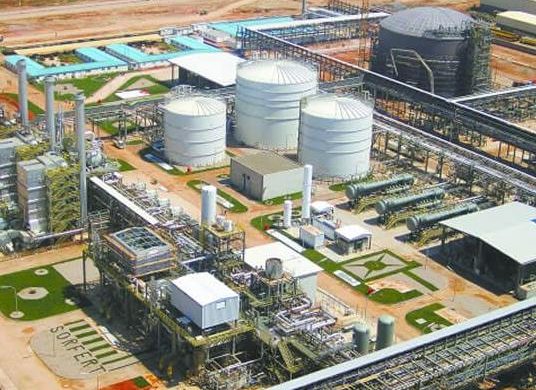Phosphate-based fertiliser producer, OCP Africa Fertilisers Nigeria Limited (OCP Africa), has voted $42.4 million to build blending plants.
The mega fertiliser blending plants are to be located in Sokoto, Kaduna and Ogun states, all in Nigeria.
Mr. Caleb Usoh, the Country Manager, OCP Africa Fertilisers Nigeria, said also that the Nitrogen, Phosphorus and Potassium (NPK) blending plant in Kaduna cost $13.4 million.
The Kaduna plant has facilities to produce an estimated capacity of 120 metric tonnes per hour.
Earlier, the United States International Agency for Development (USAID)-funded West Africa Trade & Investment Hub (Trade Hub) had awarded a $1.4 million co-investment grant to OCP Africa Fertilisers Nigeria Limited (OCP Africa) to install modern blending equipment within its Kaduna fertiliser blending plant.
Speaking at a Farmers’ Forum in Abuja, Usoh said the mega fertiliser blending plants will contribute additional 500, 000 metric tonnes of NPK fertiliser to the national production capacity.
He said the average yearly consumption of NPK fertiliser blends in Nigeria between 2017 and 2019 (since the inception of the Presidential Fertiliser Initiative) was 685,000 metric tonnes, but that consumption will reach 1,000,000 metric tonnes this year.
“Nigeria with arable farmland of approximately 34 million hectares has the capacity to consume 5,000,000 metric tonnes of NPK fertiliser blends annually even at a modest application rate of 150kg per hectare,” Usoh said.
He reiterated that OCP Nigeria was partnering the Federal Government to establish a $1.3 billion Basic Chemicals Platform that will produce Ammonia, Phosphoric Acid, Sulphuric Acid and various NPK and Diammonium Phosphate (DAP) fertilisers using Nigeria’s gas reserves.
The blending equipment will help bridge the gap where there is a paucity of specialised fertilisers to grow crops on a large scale and support food security.
The planned facility and equipment will produce various fertiliser blends customised to the needs of rice, maize, soybean, cassava, tomato, and other staple crops grown in Nigeria.




